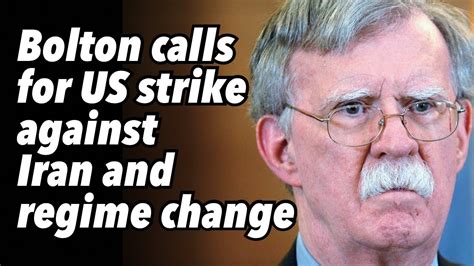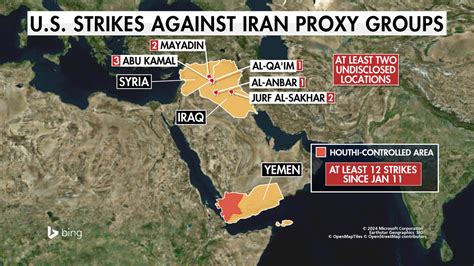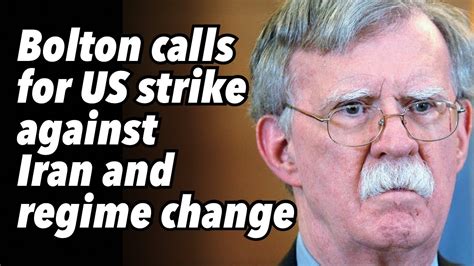
A viral tweet from a mother who identifies as a “MAGA Mom” has ignited online discussion after she claimed her son’s silence regarding the Israel-Hamas conflict “speaks volumes” to her, amassing over 9.9 million views. The controversial post sparked a wave of reactions, highlighting generational divides and differing perspectives on complex geopolitical issues.
The user, known as @NoLeftTurns4USA, posted the message on October 14, stating, “My own son won’t speak to me about what’s happening in Israel. His silence speaks volumes to me.” This concise yet loaded statement triggered a firestorm of responses, ranging from supportive affirmations to accusations of parental manipulation and political divisiveness. The tweet quickly gained traction, catapulting the issue of family discord amidst political polarization into the digital spotlight. The incident underscores the increasing challenges families face in navigating sensitive topics and maintaining relationships in an era of intense political and ideological divisions. The mother’s decision to publicly share her personal struggle has amplified the discourse surrounding intergenerational communication and the impact of current events on familial bonds.
The original tweet immediately drew criticism, with many users accusing the mother of attempting to publicly shame her son and imposing her political beliefs upon him. Some argued that his silence could stem from various reasons, including a lack of knowledge on the subject, disagreement with her views, or simply a desire to avoid conflict. Others defended the mother, suggesting she had the right to express her feelings and that her son’s reluctance to engage indicated a deeper problem.
“It’s entirely possible he doesn’t have a fully formed opinion on the matter and is intelligent enough not to speak on something he knows little about,” one user commented, reflecting a common sentiment among critics. Supporters, however, viewed the tweet as a lament over a perceived disconnect between generations and a concern for the ongoing crisis in Israel.
The incident highlights the growing phenomenon of political divides straining family relationships. A recent study by the Pew Research Center found that approximately one-third of Americans have stopped talking to a close friend or family member about politics due to disagreements. This trend suggests that the “MAGA Mom’s” experience is not unique, but rather symptomatic of a broader societal challenge.
The tweet also served as a catalyst for broader discussions about the Israel-Hamas conflict itself. Many users took the opportunity to share their own perspectives on the situation, leading to heated debates and further polarization. The comment section became a microcosm of the global discourse surrounding the conflict, reflecting the complexity and sensitivity of the issue.
The controversy surrounding the tweet underscores the power of social media to amplify personal experiences and transform them into national conversations. What began as a mother’s private frustration quickly became a public spectacle, demonstrating the potential for online platforms to both connect and divide individuals. The incident also raises questions about the ethics of sharing personal family matters on social media, particularly when it involves sensitive political issues.
This isn’t the first time that political differences have caused friction within families. The rise of partisan politics in recent years has led to increasingly polarized views on a wide range of issues, from climate change to immigration to social justice. This polarization has inevitably seeped into personal relationships, creating tension and conflict within families. The “MAGA Mom’s” tweet serves as a stark reminder of the challenges involved in navigating these divides.
The impact of social media on political discourse cannot be overstated. Platforms like Twitter (now X) have become breeding grounds for political debate, often characterized by inflammatory rhetoric and personal attacks. The anonymity afforded by the internet can embolden individuals to express views they might otherwise keep private, leading to increased polarization and conflict. The “MAGA Mom” tweet is a prime example of how social media can amplify these trends, turning personal disagreements into public spectacles.
Furthermore, the incident raises questions about the role of parents in shaping their children’s political views. While some argue that parents have a right to instill their values in their children, others believe that young adults should be free to form their own opinions, even if they differ from those of their parents. The “MAGA Mom’s” tweet suggests a potential conflict between these two perspectives, highlighting the challenges of raising children in a politically charged environment.
The widespread attention garnered by the tweet also underscores the public’s fascination with the personal lives of political figures and their supporters. The “MAGA Mom” moniker itself suggests a certain level of public interest in individuals who openly align themselves with the “Make America Great Again” movement. This interest can be attributed to a variety of factors, including a desire to understand the motivations and beliefs of those who hold opposing political views, as well as a general curiosity about the lives of ordinary people who are caught up in extraordinary political events.
Moreover, the incident highlights the importance of effective communication within families. When political disagreements arise, it is crucial for family members to engage in respectful dialogue, listen to each other’s perspectives, and find common ground. The “MAGA Mom’s” tweet suggests a breakdown in communication between her and her son, leading to frustration and public airing of their differences. This underscores the need for families to develop strategies for navigating political disagreements in a constructive manner.
The controversy also sheds light on the evolving nature of family dynamics in the digital age. Social media has created new avenues for families to connect and communicate, but it has also introduced new challenges, such as the potential for public shaming and the blurring of boundaries between private and public life. The “MAGA Mom’s” tweet is a reminder that families must navigate these challenges carefully in order to maintain healthy relationships.
The incident has also reignited a debate about the role of social media in shaping public opinion. Some argue that platforms like Twitter are echo chambers that reinforce existing beliefs and contribute to political polarization. Others believe that social media can be a valuable tool for promoting dialogue and understanding. The “MAGA Mom’s” tweet demonstrates both of these potential effects, highlighting the complex and multifaceted role of social media in shaping public discourse.
In conclusion, the “MAGA Mom’s” tweet serves as a microcosm of the broader challenges facing families in a politically polarized society. It underscores the importance of effective communication, respect for differing perspectives, and careful consideration of the potential consequences of sharing personal information on social media. The incident also highlights the need for individuals to engage in critical thinking and avoid making assumptions about others based on their political affiliations. The reactions the tweet generated demonstrate the breadth of opinions, the sensitivity of the topic, and the deep divisions existing across generations and political lines.
The long-term impact of the tweet remains to be seen, but it has undoubtedly sparked a national conversation about the intersection of politics, family, and social media. As families continue to grapple with these challenges, it is crucial to prioritize respectful dialogue, empathy, and a willingness to understand perspectives different from our own. Without such efforts, the political divides that are currently straining family relationships will only deepen, further fragmenting society.
Expanded Analysis and Context
The “MAGA Mom’s” tweet incident represents a significant moment in the ongoing narrative of political division and its impact on personal relationships. While seemingly a simple expression of frustration, the tweet has resonated with millions, triggering a wider examination of several key issues: the erosion of family communication, the pervasive influence of social media on political discourse, and the challenges of navigating intergenerational differences in an increasingly polarized world.
Erosion of Family Communication
The core issue at the heart of this controversy is the breakdown of communication between the “MAGA Mom” and her son. The mother’s decision to publicly lament her son’s silence suggests a pre-existing communication barrier or a perceived unwillingness on his part to engage in discussions about sensitive topics, particularly the Israel-Hamas conflict. This breakdown can be attributed to several factors, including:
- Political Polarization: The increasingly polarized political climate has made it more difficult for individuals to engage in respectful dialogue with those who hold differing views. The “MAGA Mom’s” self-identification as a supporter of the “Make America Great Again” movement may indicate a significant ideological divide between her and her son, making it challenging for them to find common ground on complex issues.
- Generational Differences: Different generations often have different perspectives on political and social issues, shaped by their unique experiences and values. The son, being of a younger generation, may have a different understanding of the Israel-Hamas conflict and its complexities, leading him to disagree with his mother’s views or to simply prefer not to engage in a potentially contentious debate.
- Lack of Empathy: Effective communication requires empathy, the ability to understand and share the feelings of another person. The “MAGA Mom’s” tweet suggests a lack of empathy for her son’s perspective, as she appears to be prioritizing her own feelings and beliefs over his. This lack of empathy can further exacerbate communication barriers and lead to resentment.
- Fear of Conflict: Political discussions can often be emotionally charged and lead to conflict. The son may be avoiding discussing the Israel-Hamas conflict with his mother in order to prevent an argument or maintain peace within the family. While understandable, this avoidance can ultimately damage the relationship and prevent meaningful dialogue.
Influence of Social Media on Political Discourse
The “MAGA Mom’s” tweet incident also highlights the pervasive influence of social media on political discourse. Platforms like Twitter have become powerful tools for shaping public opinion and amplifying political messages. However, they can also contribute to polarization and the spread of misinformation.
- Echo Chambers: Social media algorithms often create “echo chambers,” where individuals are primarily exposed to information that confirms their existing beliefs. This can lead to a reinforcement of biases and a reduced willingness to consider alternative perspectives. The “MAGA Mom” may be operating within an echo chamber that reinforces her views on the Israel-Hamas conflict, making it difficult for her to understand or appreciate her son’s perspective.
- Amplification of Extremes: Social media tends to reward extreme or controversial content, as it generates more engagement. This can lead to the amplification of fringe voices and the marginalization of moderate viewpoints. The “MAGA Mom’s” tweet, while not necessarily extreme, has gained attention precisely because it touches on a sensitive and controversial topic.
- Public Shaming: Social media can be used as a tool for public shaming, where individuals are targeted for their beliefs or actions. The “MAGA Mom’s” tweet can be seen as an attempt to publicly shame her son for his silence, which many users have criticized as inappropriate and manipulative.
- Misinformation and Disinformation: Social media is rife with misinformation and disinformation, which can make it difficult for individuals to form informed opinions on complex issues. The “MAGA Mom” and her son may be operating with different sets of facts, leading to further disagreements and misunderstandings.
Navigating Intergenerational Differences
The “MAGA Mom’s” tweet incident also raises questions about the challenges of navigating intergenerational differences in an increasingly polarized world. Different generations often have different values, experiences, and perspectives, which can lead to conflict and misunderstandings.
- Cultural Shifts: Cultural norms and values are constantly evolving, and different generations may have different understandings of these shifts. The “MAGA Mom” may hold more traditional values, while her son may embrace more progressive ideals. These differences can lead to conflict over issues such as gender equality, racial justice, and social justice.
- Technological Divide: The younger generation is more technologically savvy than previous generations, and they often rely on social media and the internet for information and communication. The “MAGA Mom” may not be as familiar with these technologies, which can create a communication gap between her and her son.
- Historical Context: Different generations have lived through different historical events, which can shape their perspectives on political and social issues. The “MAGA Mom” may have a different understanding of the Israel-Hamas conflict based on her experiences and historical knowledge.
- Evolving Family Roles: Traditional family roles are evolving, and the relationship between parents and children is becoming more egalitarian. The “MAGA Mom” may be struggling to adjust to this shift, as she may still expect her son to adhere to her beliefs and values.
Ethical Considerations
The “MAGA Mom’s” decision to share her personal frustrations on social media raises several ethical considerations. While she has the right to express her opinions, her tweet could be seen as a violation of her son’s privacy and an attempt to manipulate him publicly. This raises questions about the ethical boundaries of social media and the responsibility of individuals to protect the privacy of their family members.
Moving Forward
Addressing the challenges highlighted by the “MAGA Mom’s” tweet requires a multifaceted approach that focuses on promoting effective communication, fostering empathy, and encouraging critical thinking.
- Promoting Effective Communication: Families need to develop strategies for engaging in respectful dialogue, even when they disagree on political issues. This includes actively listening to each other’s perspectives, avoiding personal attacks, and finding common ground.
- Fostering Empathy: It is crucial to cultivate empathy, the ability to understand and share the feelings of others. This involves putting oneself in the shoes of another person and trying to see the world from their perspective.
- Encouraging Critical Thinking: Individuals need to develop critical thinking skills in order to evaluate information objectively and avoid being swayed by misinformation or propaganda. This includes questioning assumptions, seeking out diverse perspectives, and verifying facts before sharing them.
- Setting Boundaries: Families need to establish clear boundaries for discussing political issues, particularly on social media. This includes agreeing to disagree respectfully, avoiding personal attacks, and protecting the privacy of family members.
By addressing these challenges, families can navigate the complexities of a politically polarized society and maintain healthy relationships. The “MAGA Mom’s” tweet serves as a cautionary tale, reminding us of the importance of empathy, communication, and respect in an increasingly divided world.
Frequently Asked Questions (FAQs)
-
What was the core issue that sparked the controversy surrounding the “MAGA Mom’s” tweet?
- The core issue was the mother’s public expression of disappointment and perceived frustration over her son’s silence regarding the Israel-Hamas conflict, which she interpreted as speaking volumes. This sparked a debate about family communication, political polarization, and the appropriateness of sharing personal family matters on social media.
-
Why did the “MAGA Mom’s” tweet gain so much attention, reaching over 9.9 million views?
- The tweet resonated due to its intersection with several sensitive and topical issues, including the Israel-Hamas conflict, political divides within families, and the pervasive influence of social media on personal relationships. The combination of these factors, coupled with the “MAGA Mom” identifier, amplified its reach and impact.
-
What were some of the criticisms leveled against the “MAGA Mom” for her tweet?
- Critics accused her of attempting to publicly shame her son, imposing her political beliefs on him, violating his privacy, and using social media inappropriately to air personal family matters. Some suggested his silence could stem from valid reasons, such as a lack of knowledge or a desire to avoid conflict.
-
How does the “MAGA Mom’s” tweet reflect broader societal trends?
- The tweet reflects the growing trend of political polarization straining family relationships, the increasing use of social media for political discourse (often leading to division), and the challenges of navigating intergenerational differences in a politically charged environment. Studies show a significant percentage of Americans have ceased political discussions with family or friends due to disagreements.
-
What are some of the ethical considerations raised by the “MAGA Mom’s” tweet?
- Ethical considerations include the potential violation of her son’s privacy, the appropriateness of using social media to publicly shame or manipulate family members, and the blurring of boundaries between private and public life. It raises questions about the responsibilities individuals have when sharing personal family matters on a public platform.









